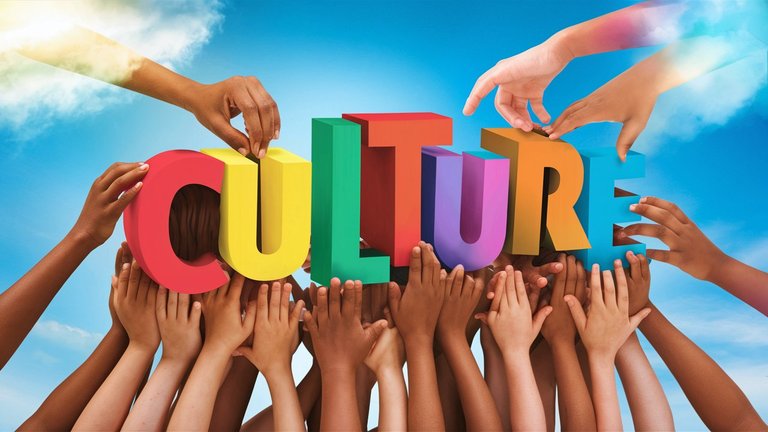As always, culture is generally described as the people's way of life, that means, their way of dressing, speech, food, marriage rites, burial or funeral rites, etc. The beauty of culture is mostly seen in our diversity or differences, especially in Nigeria. There are about 250 ethnic groups and although some share almost the same cultural values there are still distinct and peculiar values in each culture.

Source
Customarily, there are three major ethnic groups in Nigeria, there are the Igbo, Hausa, and Yoruba. These groups have their peculiar and fascinating norms and values. These cultures are deeply rooted in traditions that are passed down from one generation to another. The culture of a place keeps its people close to their traditions and beliefs. Culture serves as an identity for who you are.
Born and raised in the northern part of Nigeria, having understood some cultural practices in the north I would be discussing the Hausa ethnic group today. A good number of the Hausa ethnic group are devoted Muslims while a minority are Christians, the generally accepted and spoken language is the Hausa language.
The Hausas are known for trading, and agriculture (rearing livestock such as sheep, goats, cattle, camel, etc and cultivating mostly cereal crops like millet, rice, guinea corn, wheat, and maize; leguminous crops like beans and groundnuts). They are also skilled in leatherwork and crafts.
The Hausas delicacies include Masa which is widely eaten in Bauchi state, Tuwon masara (corn food), miya kuka (a soup made from baoboa leaves), miya taushe (a soup made from pumpkin), nono da fura (cow milk and millet cake), Dan wa'ke (beans dumplings cooked on boiling water), kunun aya (tiger nut drink) etc.
The common dressing regalia found in the male Hausas group are the Babban-Riga, Jalabbiya (a long flowing gown), and an embroidered cap called hula. The female folks are identified with a wrapper (Ankara or atampa) a matching blouse, a head- tie, and a long shawl called gele. They also beautify their bodies with jewelleries and their hands and feet with henna and lallai.
When it comes to marriage rites, marriage ceremonies are not expensive compared to the other ethnic groups, for the devout Muslims, marriage rites are based on Islamic teachings, a Muslim man is permitted to marry up to four wives provided he loves and treats them equally. After the groom and his family members have sought the consent of the intended bride's parents and gained approval, both families begin to bargain on the bride's dowry and according to Islamic teachings, the bride's dowry is preferred to be low or less expensive, because it is believed that if the dowry is less expensive, the more blessings and favors the marriage would attract from Allah.
You can imagine also that the grooms are expected to get a place while the bride's family furnishes the place with a bed, kitchen utensils, wardrobe, etc. It is more like an equal commitment from both parties. I believe that due to the favorable financial obligations involved in these marital rites, the Hausa males get more opportunities to become polygamists, they are entitled to four wives.
Some time ago, I asked a Muslim friend why should they marry four wives and he explained that it wasn't obligatory to do so, but it is advisable if one has the means to take care of their needs and show equal affection and most importantly to curtail the issue of adultery. It is believed that with four wives probably from different homes and backgrounds, having unique characters and upbringings, it was difficult to cheat or commit adultery.
Interesting, I must say, in fact, the Hausa Muslims are allowed to divorce their spouses up to three times after which, if they desire to bring her back home it would be a new marriage rite altogether.
Another amazing and interesting culture of the Hausas ethnic group is their funeral or burial rites, Compared to other major ethnic groups in Nigeria, the funeral rites of the Hausa culture according to Islamic teachings, it is forbidden to bury the dead in a casket or coffin.
The corpse is washed (washing ritual) and rolled in a mat or some large clay pots and then buried in the cemetery known as Ma'karbata in the Hausa language. After 40 days, the people; relatives, friends, colleagues, business associates, etc gather together to do what is called sadaka (almsgiving), whatever is raised is distributed to the immediate family members, and prayers are said to conclude the rites.
The Hausa ethnic group is very lucky when it comes to marriage rites and funeral rites, not so many financial obligations are required or expected from them. It is safe to say that they are the cheapest if not the only ethnic group with less expenses when it comes to marriage and Funeral rites.
Facing writer's block? Join the lnleo May Writing Prompt today and say goodbye to, "I don't know what to do write about today".
Posted Using InLeo Alpha
Posted Using InLeo Alpha
Posted Using InLeo Alpha